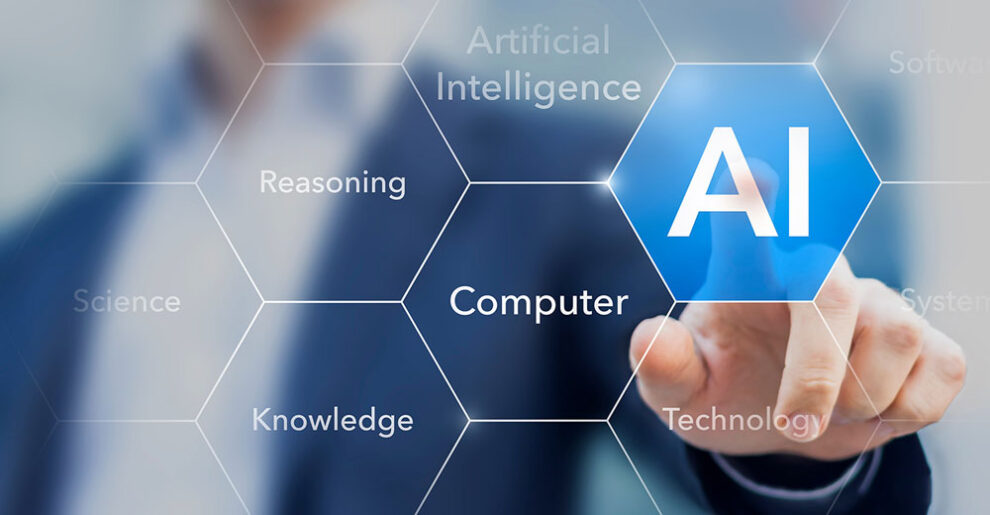Artificial intelligence has reshaped everything we know about our world. My professional life revolves around retail. AI is rapidly and significantly changing the retail landscape, and everything that is within it.
AI is the buzzword for retail this year. How is this revolution affecting everything from supply chain to customer interaction?
Here are six AI trends, and how retailers can benefit from each.
1. AI in Retail Supply chains
AI is a key component in today’s dynamic retail environment. revolutionizing supply chains By enhancing efficiency and resiliency. AI used to be a futuristic notion, but today it’s a real-life reality reshaping retail. Retailers optimize the supply chain through data-driven insight and automation. This leads to significant cost savings as well as improved customer satisfaction.
Imagine a world in which your favorite products will always be available and that deliveries would be faster than ever. AI has the power to transform retail chains. This is like having an assistant that knows where to go and when. In today’s fast paced market where the consumer’s demands are constantly changing, this level of efficiency is essential.
Walmart, for example, uses machine learning algorithms to analyze vast amounts of data in order to accurately predict stock levels. AI is used by the company to forecast demand across all of its stores and warehouses for more than 500 million products, reducing both overstock and shortages. This technology is used strategically to ensure that customers can find the products they are looking for and maintain a low inventory. It also helps reduce waste and costs.
2. Chatbots Enhance Retail Customer Experiences
Chatbots offer fast, accurate and personalized assistance, which meets the expectations of digitally-savvy consumers. These automated systems enhance customer experience, streamline operations and reduce customer service costs.
Sephora’s website and app use an AI-powered bot to provide personalized beauty advice. This chatbot converses with the customer, improving their shopping experience online and guiding to relevant products.
eBay, an e-commerce multinational, uses AI technologies such as ChatGPT in order to improve customer service and operational efficiency. The online auction company uses AI to provide better and more timely responses and understand the customer’s inquiries.
3. AI’s impact on Holiday Retail
AI’s influence is most noticeable in the retail holiday season. AI affects consumer spending and improves the customer experience. The technology is reshaping the way retailers approach this crucial period of sales. Future impacts and trends point towards this cutting-edge tech playing an even larger role.
4. RFID: Revolutionizing Retail Operations
AI is also having a major impact in the area of radio-frequency (RFID) identification. This technology is used to enable efficient self check-outs and improved inventory tracking. Brands are using it to improve customer service and their operations.
Zara is a Spanish multinational retailer of clothing that uses RFID technology for better inventory management. Zara uses RFID to track every piece of clothing, from the warehouse to its stores. This ensures that the most popular items are available and always in stock. This level of inventory control is essential for maintaining customer satisfaction, and optimizing sales.
5. Artificial Intelligence vs. Traditional Marketing
AI is replacing the traditional marketing strategies in a quiet way. It uses data analysis, personalization and automation to offer a more efficient and effective approach for reaching and engaging with customers.
6. Retail Renaissance: Virtual Stores, AI Integration
AI integration is transforming virtual stores and marketplaces, bringing many benefits to the table and enhancing online shopping experiences.
IKEA Place is IKEA’s augmented-reality application that allows customers to see how their furniture will look in their home before they make a purchase. This innovative AI application helps customers make confident purchases and reduces the chances of product returns.
AI and Retail: A Future Perspective
We plan how to proceed. invest our time and resources in 2024Let’s embrace retail AI’s revolution that is reshaping shopping in incredible ways. It’s an adventure of innovation and transformative change that is changing the way we market and interact with retail.
AI, from supply chain optimizations, to enhanced customer experience, is changing the retail industry. It’s setting new standards for efficiency, customer satisfaction, and personalization.
AI powers the future of retail.












